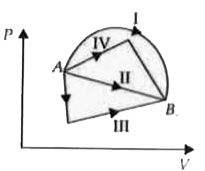New species may be formed if
(i) DNA undergoes significant changes in germ cells
(ii) chromosome number changes in the gamete
(iii) there is no change in the genetic material
(iv) mating does not take place
(i) and (ii)
(i) and (iii)
(ii), (iii) and (iv)
(i), (ii) and (iii)
The correct Answer is:A
New species can be formed if there is considerable change in the genetic make up of an organism. This change can be a significant change in the DNA of germ cells or changes in the number of chromosomes.
Similar Questions
A nucleus undergoes β-decay. How does its (i) mass number, (ii) atomic number change ?
View Solution(i) Name the enzyme that catalyses the trancription of hnRNA. (ii) Why does the hnRNA need to undergo changes? List the changes hnRNA undergoes and where in the cell such changes take place?
View Solution
Knowledge Check
New species may be formed if
(i) mating does not take place.
(ii) DNA undergoes significant changes in germ cells.
(iii) there is no change in genetic material.
(iv) chromosome number changes in gametes.A(i) and (iv)B(ii) and (iv)C(ii) arnd (iii)D(i) and (iii)During differentiation, the cells undergo structural changes in their
A) cell wall B) genetic material C) protoplasm D) unit membranesAA, BBC, DCA, CDB,DThe given P - V diagram is showing an ideal gas undergoing a change of state different paths I, II, III and IV that lead to the same change of state, then change in internal energy is
 Amaximum along path 1Bmaximum and same along paths III and IVCminimum along path IIDsame in all the four cases
Amaximum along path 1Bmaximum and same along paths III and IVCminimum along path IIDsame in all the four cases
(i) Name the enzyme that catalyses the transcription of hnRNA.
(ii) Why does the hnRNA need to undergo changes ? List the changes hnRNA undergoes and where in the cell such changes take place.
View Solution(i) Name the enzyme that catalyses the transcription of hnRNA.
(ii) Why does the hnRNA need to undergo changes ? List the changes hnRNA undergoes and where in the cell such changes take place.
View Solution(i) Name the enzyme that catalysis the transcription of hnRNA.
(ii) Why does the hnRNA need to undergo changes?
(iii) List the changes hnRNA undergoes and where in the cell such changes take place?
View SolutionWhich of the following changes take place during roasting ?
(i) Impurities are removed as they form volatile oxides.
(ii) Ore is converted into their volatile oxides.
(iii) Changes like oxidation , chlorination, etc. take place
View SolutionWhich of the following changes take place during roasting ?
(i) Impurities are removed as they form volatile oxides.
(ii) Ore is converted into their volatile oxides.
(iii) Changes like oxidation , chlorination, etc. take place
View Solution
